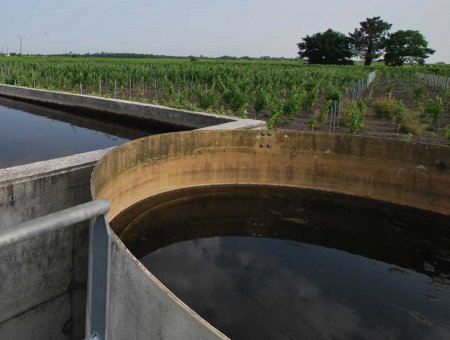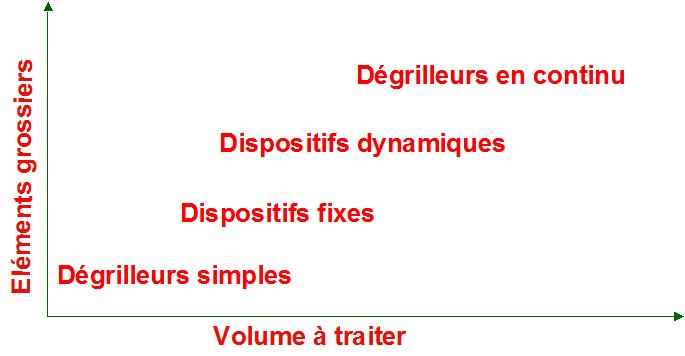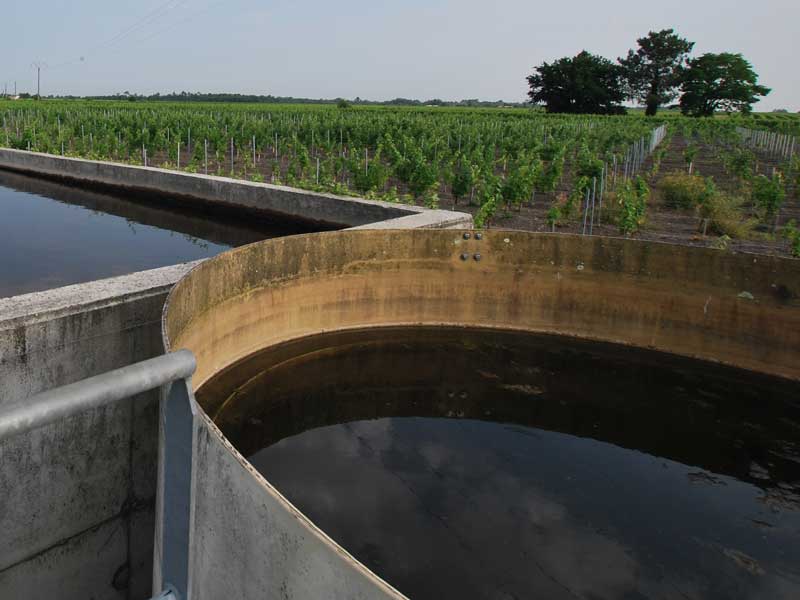Screeners
Cellar effluent contains solid particles such as stalks, leaves, berries, seeds, soil particles and scale crystals. In addition to the pollution caused by these elements, they represent a risk of clogging the installations and must therefore be eliminated before the effluent is sent to the treatment system.|| Pre-treatment of the effluent also makes it possible to optimise the treatment procedure. It consists of screening and/or settling.

Screening
The screening device must be adapted to the flow rate and the quantity of solids to be retained. Depending on the importance of these 2 parameters, the choice of screen can be based on static screens (screen baskets) for low flows of lightly loaded effluent or automatic screens for high flows of heavily loaded effluent. For very fine screens (less than 2 mm), it is preferable to use automatic bar screens, as bar baskets clog up very quickly with this type of mesh.
In many cases, bar screens are sufficient to retain solid particles, especially when the gutters or siphons in the winery are fitted with grids or small bar screens.
In many cases, bar screens are sufficient to retain solid particles, especially when the gutters or siphons in the winery are fitted with grids or small bar screens.

Wine effluent treatment - Screening, elements of choice
Decantation

Settling tank - Activated sludge treatment
In the settling tank, solids settle under the effect of gravity. These installations must be cleaned regularly.
In the case of cellar effluent, settling tanks are only useful for trapping heavy particles (soil from grape harvester wheels, filtration additives not recovered during washing, etc.).

Example of a screening and settling system












